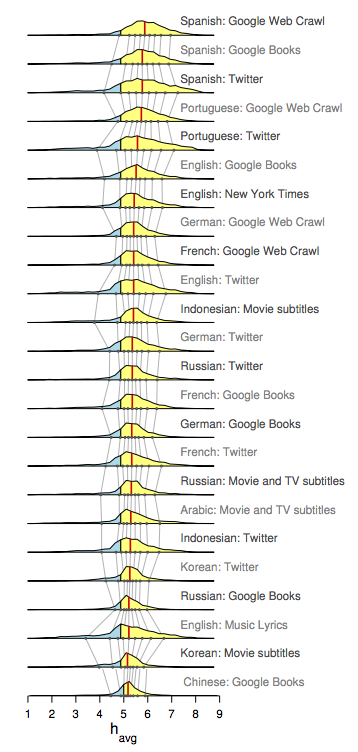A couple of weeks ago, I was musing about the notion that the German language may just not be the perfect vehicle for Positive Psychology – as I feel my mother tongue may lack specific positive words, or at least displays a certain lack of breadth and differentiation at the positive end of the “language scale”. While this “lost in translation” effect was based on my intuition and personal experience, recent research supports my notion at least to some extent. As part of a large-scale study, researchers collected the most frequently used words in all of the major languages of the world – and then had them rated for positivity/negativity by natives speakers.
Finding No. 1: Positivity
Each and every language is positively skewed. Means: across languages, positive words are used more often than negative words.
No. 2: Distribution
Some languages are heavily inclined to the positive side (e.g, Spanish), while others are more balanced (e.g., Chinese). German is located in the lower middle part, so we use positive words less often than a lot of other languages (including English).
I think this study is able to shed some light on why someone might feel the aforementioned “lost in translation” effect when trying to bring Positive Psychology to a culture other than the “typical” Anglo-Saxon context. It just might be a (slight) case of an emotional mismatch.
